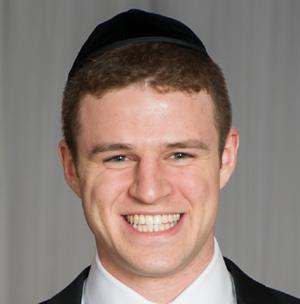
3 minute read
SILVER FROM THE SPRING
Denial Ain’t Just A River In Egypt

BY NATHAN WITZTUM
One of the most well-known questions in all of Judaism is “the question of the Beis Yosef”. Entire volumes have been published to analyze the question from every angle, and hundreds of answers have been suggested over the centuries.
The question that Rabbi Yosef Karo, author of the Beis Yosef and the Shulchan Aruch, asks is why is it that we celebrate eight nights of Chanukah, when in fact there was enough oil to last for one night. Consequently, the miracle technically only occurred for seven nights, so why do we celebrate eight?
Most years, Shabbos Chanukah falls out on Parshas Miketz. While numerous clues have been found in the parsha that allude to the holiday of Chanukah, one suspects that there would also be a thematic correlation to justify this calendrical alignment. Perhaps by exploring one aspect of the parsha, we can also find an answer to the Beis Yosef’s legendary question.
In Parshas Miketz, Pharaoh dreams about seven famished cows eating seven healthy cows, and subsequently envisions seven withered ears of grain consuming seven wholesome ears. Rashi quotes Midrash Rabbah (89:6), which teaches that Pharaoh’s advisers offered their own interpretations of the dreams to Pharaoh, but none of these seemed correct to him. Their attempted explanations were that he would have seven daughters who would all die, and that he would conquer seven nations who would then rebel against him. Only once Pharaoh’s butler recalls that Yosef is skilled at making sense of night visions is Yosef summoned and succeeds in finding an interpretation that satisfies Pharaoh.
The puzzling part of the story is that the dreams quite clearly indicate that the subject is the agricultural world. Surely, good quality ears of grain and fatty cows would most directly signify a coming bountiful harvest, while inferior produce and skinny cows would hint to a famine of sorts. What was so elusive that Pharaoh’s advisers weren’t able to figure it out? Presumably, they were intelligent people, so why was it only Yosef who was able to predict the impending plenty and scarcity?
To be sure, the meforshim, such as the Kli Yakar, address how it is in fact that Pharaoh’s dreams could be interpreted to convey the meaning that his necromancers ascribed to them. And, of course, the Midrash itself testifies that the ultimate reason for their inadequate resolutions was Hashem’s Plan for Yosef to be appointed viceroy over Egypt. Yet, on a rational level, we still need to understand how Pharaoh’s attendants could have missed the most obvious and basic reading of their king’s dreams.
But perhaps the answer is very simple. Maybe they just considered that possibility to not be a possibility at all. Recall that both Avraham and Yitzchak experienced famines while living in Canaan. At those times, Avraham navigated to Egypt, while Hashem instructed Yitzchak not to go to Egypt, implying that Egypt would be the natural place to go in such a circumstance. The conclusion to be drawn is that Egypt, with its reliable Nile River and surrounding fertile land, was impervious to the effects of a regional drought. So, perhaps Pharaoh’s advisers dismissed the correct interpretation because they were in denial that a famine could ever take place in Egypt.
But of course, a famine did take place in Egypt, just as Yosef predicted. Apparently, Yosef did not deem it beyond the realm of possibility for a famine to occur in prosperous Egypt. Why was this? What allowed Yosef to open his mind to the option that was discarded by the king’s advisers?
Presumably, the answer lies in Yosef’s response to Pharaoh when asked to interpret the dreams:
And Yosef answered Pharaoh saying, “It is beyond me. May G-d address Pharaoh’s welfare.”
Yosef acknowledges that he is not the source of his abilities. Rather, they originate from Hashem. By recognizing that his skill came from the Almighty, Yosef was not only being humble. He was also reminding himself that Hashem runs the world. And for Hashem, nothing is impossible.
The question of the Beis Yosef is founded upon the premise that there is a fundamental difference between the first night of the oil burning and the subsequent seven nights. But, HaRav Avigdor Neventzahl shlit”a answers that there is in fact no difference between the first night and the seven nights that followed, because “nature” is an illusion. Nature is just the name we give to the way Hashem set up the world to run under ordinary circumstances, but it is no less from Hashem than a miracle. Hence, the oil lasted for seven extra days because Hashem so decided, but the oil burned that first night also because Hashem so decided. On a deep level, there is in fact no distinction.
As we go through life, we often discount things, both good and bad, as not possible. Some of the most tragic events in our lifetimes were thought to be impossible, until they happened. Conversely, people often experience tremendous elation when an unexpected positive development takes place. The lesson from Yosef, and the lesson from Chanukah, is that if Hashem can make a jug of oil last for one day, He can make it last for eight days. As Rabbi Chanina ben Dosa declares in Ta’anis 25a, “He Who told the oil to burn, He can tell the vinegar to burn.” For Hashem, anything is possible.










